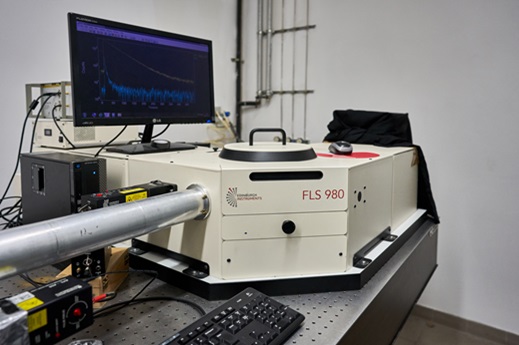Photoluminescence
Photoluminescence spectroscopy is an important non-contact, non-invasive technique for material characterization. Photoluminescence refers to the emission of photons by a sample after it has been irradiated.
The emission can occur instantaneously, as in fluorescence (with a response time of less than 10 ns), or over a longer period, as in phosphorescence, depending on the electronic states involved in the process. The intensity and type of photoluminescence depend on the material and the wavelength used for analysis.
Time-resolved photoluminescence spectroscopy allows the study of radiative and non-radiative recombination processes. This analysis provides valuable information about the electronic recombination process, energy gap, impurity levels, molecular structure, and crystallinity. Therefore, photoluminescence is a powerful technique for studying semiconductors, photovoltaic materials, and materials for micro- and optoelectronic devices.
